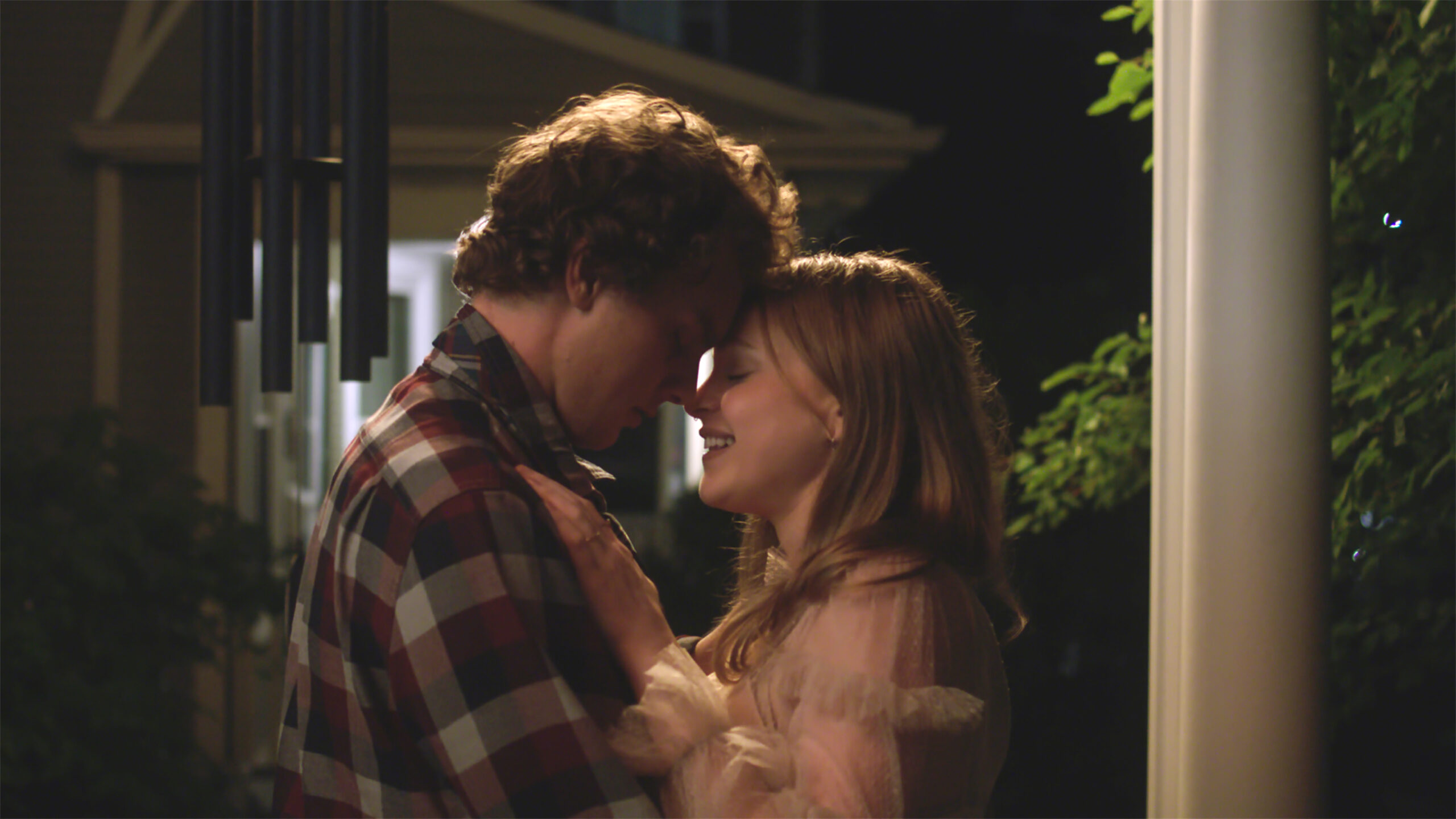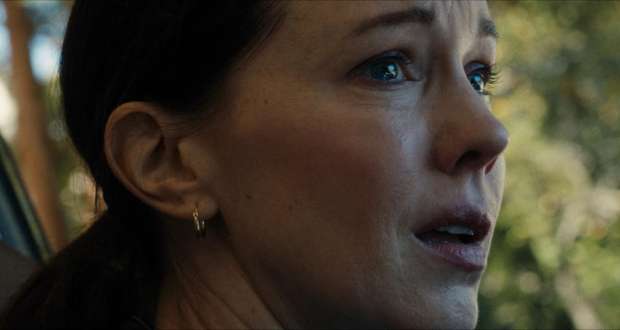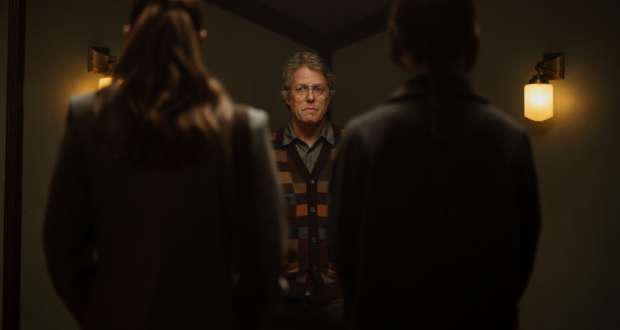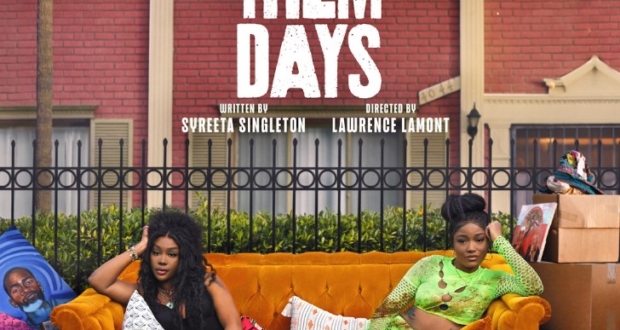Chicago filmmaker Michael Glover Smith, (awarded the Gene Siskel Film Center’s Star Filmmaker Award in 2017), has written and directed four feature films since 2015. The film “Relative” was screened at Wrigleyville’s new Alamo Drafthouse Cinema in Chicago on May 22nd for what may possibly be the last theatrical showing. However, negotiations are underway for a streaming deal that could take place as soon as this summer. The film will be a good one for serious film buffs. It is well-acted and thoughtful and the music and editing contribute to the overall excellent production.
I enjoyed the film, not only because Smith is a talented writer/director, but because the characters were much more relatable, to me, than films exclusively dealing with millennials and Generation X. Yes, the obligatory same-sex relationship was included (de rigeur these days) and there aren’t a lot of plot twists and surprises, but the cast is excellent and, as another famous filmmaker once said, “The cast is everything. You get that right, and your film will be successful.”
Relative Writer/Director Smith told the audience in the Q&A following the film, “I wanted to stretch myself as a writer in depicting a family. I wanted to depict older characters. My first three scripts were about younger people.” He went on to say that this was the largest cast he had assembled, his biggest ensemble. “To me, the cast was everything. They had that chemistry. They found it instantly. It was the best experience I’ve ever had.” Relative was also well-received by the public, and, on its opening night, was the 23rd highest-grossing film nationwide.
When asked about preparation amongst the cast for the film, zoom calls between characters were mentioned, and Clare Cooney said, “I’m allergic to preparation.” The consensus seemed to be that if you do something too many times, spontaneity dies. Since Relative was cast in 2019, just as the pandemic was beginning, the accomplishment(s) of the cast members who spent 16 days in the historic house, shooting their scenes, become even more praiseworthy.
As far as instructing his actors, Smith said, “I really like giving the actors a whole lot of freedom.” This echoes directors such as Brian DePalma, who told RogerEbert.com’s Matt Seitz, “But you have to be very patient and loving with your actors, because they’re putting everything on the line, and you have to try to get everything out of the way to not hurt their performances or distract them.”
THE GOOD

Karen Frank (Wendy Robie) talks with David Frank (Francis Guinan) on their front porch in suburban Chicago.
The cast that Smith (and Producer Clare Cooney) assembled for Relative was, indeed, very good. “Twin Peaks” alumna Wendy Robie (who portrayed Nadine Hurley, complete with eye patch) portrays sixty-something matriarch, Karen Frank. Steppenwolf theater actor Francis Guinan is her husband, David Frank. They are the parents to four offspring, who are gathering to celebrate the graduation of the tag-along child, Benjy (Cameron Scott Roberts of “The Walking Dead,” “Chicago Fire,” and “Ben Is Back.”) Benji—the “happy accident”—was eight when his older siblings were all away at college. In my own family unit, my firstborn was a freshman in college when his sister was born, 19 years later, so I can relate to the “surprise” element of family formation. (Our family motto: “Every 20 years, whether you need to or not.”)
The Franks’ oldest son Rod (Keith D. Gallagher) is an unemployed 34-year-old who moved back into his parents’ basement after his wife Sarah (Heather Chrisler), a webcam performer at a sex site, divorced him and took custody of their young son. Rod is also a veteran who suffers from PTSD, although younger brother Benjy doubts that Rod’s psychic pain is real. Rod shares with Benjy that having his father refer to him as “a fungus” at one point was very demoralizing. The father/son bond certainly seems strained to the point of incivility—especially when it comes out during the gathering that the parents might sell the house, which makes Rod wonder, “What about me?”
Tensions mount at the graduation party for Benji, which only amplifies Rod’s feelings of failure and David’s resentment of him for living in his parent’s basement and delaying their mother’s retirement. However, there are signs of detente as the film progresses.
Daughter Evonne (Clare Cooney) comes into town from Madison, Wisconsin with her girlfriend Lucia (Melissa DuPrey), a Black woman, and their mixed-race daughter Emma (Arielle Gonzalez). Clare Cooney, who portrays Evonne, flew in all the way from Cannes, where she was participating in the Cannes Film Festival. I hope Cooney’s excellent short “Runner” was part of that historic film festival’s offerings. It was one of the most impressive shorts at the Windy City Film Festival the year my own script was in the running in a different category. Clare Cooney—who both acts, writes, directs, and, in this case, produces (and casts)—is a very talented filmmaker.
Another sister, Norma (Emily Lape), has driven in from Bettendorf, Iowa (where I had a business from 1985 to 2003). Smith told us during the Q&A that Norma represents the “normal” family member, hence her name. Norma talks openly to her parents about her perception that the family is disintegrating. The line that applies is William Butler Yeats’ “Things fall apart; the center cannot hold.” Or, as Smith has re-phrased that, “The more things change, the more they stay the same. Only, they don’t. “ (“I used to think that things would always be like that.”)

The cast of “Relative.”
All of Relative’s actors were superb. The characters they portray from Smith’s script are multi-faceted and complex. For a film fan older than 30, it was nice to see Mom and Dad portrayed so well and to see the interactions of the four siblings. Writer/Director Smith shared that he considered Benjy, who is graduating and going on to a career as a cartographer for Google, to be “a selfish little prick.” I thought Benjy was rather harsh in his early judgment of his older brother, Rod, and certainly, his desire to pick up a cute blonde girl from Iceland (rather than attend his own graduation celebration) was selfish and lacking in gratitude. But Benjy seemed as though he might join Norma in the “normal” category with the passing of time.
Relative had many worthwhile observations: the sadness of the “empty nest;” it’s hard to go home it’s /it’s hard to leave home, nothing stays the same; death as sub-text. Mom Karen’s explanation of why she married David, rather than another suitor, was spot-on when Karen says that fierce loyalty beats all hell out of madly in love. Karen, the matriarch, talks about marital success as “just keep putting one foot in front of the other.” These observations spoke to me, because I’ve lived those truths. I enjoyed having an “adult film” that showed thought and did so with wit, as when the couple talks about their now adult children and comments that they haven’t done such a bad job. (“At least none of them became a Republican.”)
THE BAD
One point of contention, coming from someone who has been reviewing films since 1970—(author of “It Came from the 70s: From The Godfather to Apocalypse Now”): I’m taking issue with Writer/Director Smith’s statement regarding characterization versus plot in a story. His exact words: “As a filmmaker, I’m all character. I don’t give a f*** about story.”
I definitely agree that characterization is very, very important. But so is something happening in the story. If audiences feel that the plot has been too static, they may leave the theater disappointed. The people who mentioned to the director that they expected Norma to have a car accident on her way home [in other Q&A sessions] were waiting for that “something” to happen. If all films eliminate the “something happening,” fickle filmgoers may leave the theater whining that “nothing happened.” It’s conditioning from generations of viewing prior films, incorrect though the statement may be upon examination of Relative’s story arc.
I do agree that a lot is shown happening as a “lead-up” to something that is going to be climactic. I expected that to be the matriarch (Wendy Robie) telling the kids that either she or her spouse had cancer and only “x” months to live. That didn’t happen. If there is no plot twist of that sort, the final scene on the porch, with the characters smoking cigarillos and brother Rod actually smiling, might as well be the fitting finale of the film. Instead, it’s Norma driving back to Iowa to resume “normal” life, which was possibly the director’s intent. Patient film aficionados will be well-served by “Relative,” but the Marvel crowd may not appreciate it.
Now I will look forward to more films from Relative’s Michael Glover Smith. I hope he will at least consider upping the plot game for more average movie buffs who DO want to see “something happen,” but also want to have a deep dive into character. I suspect that films that “don’t give a f*** about plot” might have difficulty finding financing. Alienating the ticket-buying public is not any filmmaker’s goal, as that way lies disaster for future films.
This film was a success on many levels.
Making four films in just 8 years (and this one during a pandemic) is remarkable, and so is this film.























